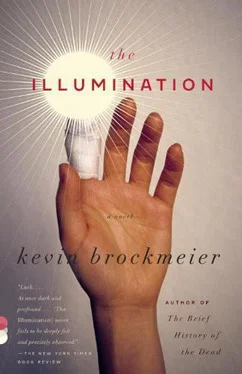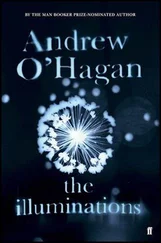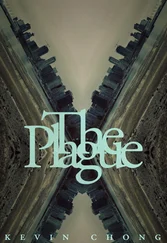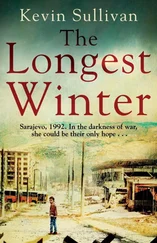Sometimes she liked to imagine that the journal had a voice and that it was speaking directly to her—a gentle baritone that developed a bit of gravel when it used her name.
I love to wake up in the middle of the night and listen to you sleeping ( Carol Ann , she added): the funny noises you make when you dream, the tiny pop of your lips separating .
“You’re too sweet. Stop it.”
I love kissing your tattoos one by one—first the bracelet on your ankle, then the heart on your shoulder, then the Celtic knot on the small of your back .
“That’s some imagination you have. There’s not a single tattoo on my body.”
The truth was that she could extract any line from the book, any line at all, and find more kindness in it than she had heard from her husband in their four years of marriage. In the beginning, when they first started seeing each other, she had been just young and naïve enough to mistake his parched inhumanity for an elaborate comic routine. She still remembered the feeling of uneasy awareness shading into panic when she realized he meant every word he said, that Nothing smells worse than an Asian who’s just discovered dairy and Fat is still fat, even if it’s only your wrists were not examples of insurrectionary humor, as he saw it, but precise statements of fact. The day she arrived home from the hospital, she had mopped the blood from the kitchen floor and cleaned the tacky brown deposits that dotted the wall and table. She had even washed the carving knife that she somehow found the presence of mind to put in the dish drainer before she left. But she ignored his package, the one that had caused so much trouble, allowing it to sit there on the counter in its jacket of threaded tape. Maybe it was no more than a trick of the subconscious, but every time she saw it, she felt a sudden glinting sensation in her thumb. A week passed before she finally built up the nerve to finish opening it. This time she used a pair of scissors, wincing as each white thread burst apart like a tendon. Inside, beneath a mound of excelsior, she found that month’s alimony check. His idea of a joke.
She spent eight hours a day sifting through stories about the economy and the Illumination, the vaccine shortage in Africa and the latest defense postures in the Middle East, so much misery that it made her head ache, and the last thing she wanted to do when she got home was watch the news. Usually, after reading a page of the journal, she would make a simple meal of soup or pasta for herself, take it to the dining room, and flip through one of the catalogs that had arrived in the mail that afternoon. Sometimes, in the endless inventory of throw rugs, wool sweaters, and fireplace cribs, she would momentarily forget everything that had ever happened to her, closing the last page and returning to her own life like a moviegoer stepping out of a darkened theater, dazed by the angle of the light.
She found it relatively easy to cook while she was wearing the glove, and to eat and type and drive, but not everything came so effortlessly. Shoes were a problem. Washing the dishes. Shaving beneath her right arm. She liked to knit every night before she went to bed, but knitting was impossible now, so instead she took to lying on the sofa watching rebroadcasts of various daytime talk shows—the one with the straight-talking Texan who walked offset holding hands with his wife, the one with the people who threw chairs at one another. Whenever the talk shows’ guests were blindsided by grief, a kind of nimbus would settle around them, a colorless shimmering cloud that seemed to be exhaled directly from their pores, fainter even than the light from a hangnail. Was she seeing their emotional pain, she wondered, or its physical counterpart, like the raw throat that followed a bout of crying, or the stomach cramps that accompanied a wave of anxiety, or the gripping sensation you felt in your chest when you realized the man you were married to despised you? Physical or emotional, it didn’t matter—the aura was unmistakable. Even on her old eighteen-inch Curtis Mathes, she could always tell when the people on the talk shows were really suffering and when they were merely playacting for the cameras.
She began to notice the same aura when she was out in public. She saw it on crossing guards, panhandlers, neighbors, coworkers. It was a simple matter of training herself not to dismiss the sight as a mirage. One day, a couple of weeks into the Illumination, she was on her lunch break when her joints began to ache and her skin felt cold to the touch and she knew she was coming down with a fever. The bottle of Advil in her purse was empty, so she pulled up to a convenience store and ran inside for a packet of pain relievers. A man was blocking the pharmaceutical shelf. Even from behind, she could see that he was distraught about something. The air wavered over his body like the air around the edges of a flame. He took a bag of cough drops from a hook, then looked up at her and gave a weak smile. “Carol Ann Page,” he said, and tapped his thumb with his index finger.
In an instant she recognized him. “Dr. Alstadt.”
“How’s that thumb of yours?”
It was stinging, she realized, stinging and cold. A frigid glow had spread down through her glove, radiating past the bones of her wrist. “Not so good today. Are you all right? Did something just happen to you?”
He touched his brow, a nervous tic, smoothing down a cowlick that must have stood far back in the thicket of his hair when he was younger but projected from the bare curve of his forehead now like a minnow leaping out of a still pond. “And here I thought I was hiding it so well. A bad day at work, that’s all. But here—let me take a look at you.” He undid the glove from her hand, a gesture that seemed strangely intimate in the buzzing luminosity of the soda cabinet. A noise of concern escaped him. “Oh, Carol Ann. My. How long has it been like this?”
“Like what?”
“Do you see how the color changes here at the scar line? That’s a sign of severe vasoconstriction. Let me ask you, does it hurt—does it light up and sort of tighten when you expose it to the cold?”
“Yes. It does do that.”
“And when did you first notice the symptom?”
“ ‘The symptom’? I didn’t know it was a symptom. It’s been sensitive to the cold ever since I came home from the hospital. Is that what you’re asking?”
“No, that’s to be expected. What I’m asking is when did you notice the color change?”
Just now, she supposed. Just this moment. When she cut her eyes across the floor, she saw a starfield of spinning dots, and she had lived in this world for so long, and she wanted so desperately for someone to be in love with her, and for a moment she had to lock her knees to prevent them from buckling.
“Dr. Alstadt, I’m not feeling so well.”
He took her by the elbow. “Are you good to drive? I think we need to get you to the hospital.” She waited to see if the dots would leave her head, and when they did, she straightened her back and nodded. “All right. Just to be on the safe side, I’m going to ask you to follow me, okay?” he insisted. “Let me check out first, and then we’ll go.”
He took the cough drops to the counter. While he was paying for them, she called the office and explained that she would be late returning to work that afternoon: “A medical emergency. I’m not sure really. Hopefully by three o’clock.” She hung up and put the phone in her purse, listened to the cashier clearing his lungs. Glancing at him, she saw two dim blossoms of what must have been cancer showing through his polyester shirt. Cancer or maybe emphysema.
A mid-afternoon gloom had settled over the city, making the trees darker than the sky. A light rain was falling. As she followed Dr. Alstadt to the hospital, she thought about all the times she had sat in the backseat of the car when she was small and her parents were young and they were driving her to church or to school, watching windblown fleets of raindrops chasing one another across the glass.
Читать дальше












